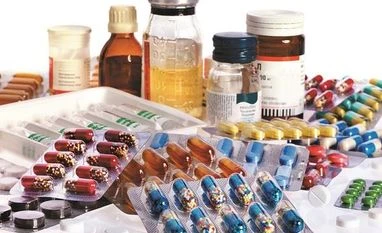India-made cold, cough medicines under WHO lens after nations flag concern
Reports of contaminated medicines came out in 2022 in The Gambia, with subsequent reports in Indonesia, Uzbekistan, and Micronesia; all the products under the scanner are syrup-based
)
Representative image
Listen to This Article
A large number of Indian cough and fever medications are being investigated by the World Health Organisation (WHO) as member countries flag contamination or substandard medications.
Margaret Harris, WHO spokesperson, told The Economic Times (ET), "To date, this situation has impacted more than 20 products with two countries of origin (India and Indonesia) and more than 15 different manufacturers."
All the products under the scanner are syrup-based such as paracetamol, cough, and vitamins.
The WHO said that though the investigations are ongoing, a link has not yet been established.
“While investigations are ongoing, the WHO has not expanded its list of medical product alerts. This may change as we receive more information,” Harris said.
Also Read
Reports of contaminated medicines came out in 2022 in The Gambia, with subsequent reports in Indonesia, Uzbekistan, Micronesia and The Marshall Islands, all warranting WHO medical product alerts, according to the ET report.
The WHO issues medical product alerts after due diligence and receiving actionable information from impacted countries. The agency has mentioned in its medical product alerts names of companies of Haryana-based Maiden Pharmaceuticals, Noida-based Marion Biotech, and Punjab-based QP Pharmachem and its marketer Haryana-based Trillium Pharma, flagging their products for containing unacceptable amounts of diethylene glycol (DEG) or ethylene glycol (EG) as contaminants in their cough and cold medications.
DEG/EG are toxic to humans. The cough and cold medications by Maiden Pharmaceuticals have been linked to a number of child deaths in The Gambia, in the case of deaths in Uzbekistan, Marion Biotech has been identified.
Since then, operations have been shut down for both companies and their licences have been cancelled.
The WHO’s alert in October last year had warned that Maiden's four products — promethazine oral solution, kofexmalin baby cough syrup, makoff baby cough syrup, and magrip N cold syrup — were found to be contaminated with DEG/EG.
The agency has asked member countries to remove these substandard products from circulation to prevent harm to patients.
In January this year, two products under question were AMBRONOL syrup and DOK-1 Max syrup by Marion Biotech.
Experts said the contamination may be due to use of industrial solvents such as DEG/EG to cut manufacturing costs or not testing the presence of DEG/EG in the propylene glycol solvent used to make cough syrups.
More From This Section
Topics : Cough syrup WHO healthcare Pharma sector paracetamol
Don't miss the most important news and views of the day. Get them on our Telegram channel
First Published: Jun 22 2023 | 12:09 PM IST


